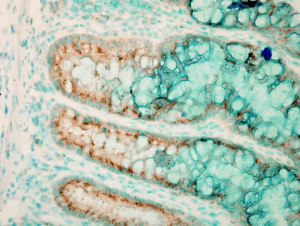Inflammatory Effects of Alcohol in Neuronal Cells
Alcohol has been linked to a myriad of negative effects on the body. Cirrhosis and liver disease are commonly seen in people who abuse alcohol. Inflammation of cells in the central nervous system (CNS), as well as demyelination and neuronal death, are other known effects of imbibing, though they have been poorly understood scientifically. In a recent study conducted by researchers from The Department of Cellular Pathology at the Principe Felipe Research Centre in Valencia, Spain, some light has been shed on the mechanism by which alcohol leads to neuronal inflammation.
The investigators began their study by considering the possibility of the immune response in these CNS-damaging effects of alcohol, and looked to microglial cells for some insight since they are largely responsible for neuronal protection from insults. One group of receptors found on the lipid rafts of cell walls of glial cells that are known to respond to potential dangers and induce the immune response are known as TLRs (toll-like receptors). These responses can lead to hyper-inflammation, causing damage to the cells and the surrounding structure. Two such TLRs were principally investigated: TLR2 and TLR4, which are known to release inflammatory cytokines; high levels of which are linked to Parkinson’s disease, stroke and ALS (amyotrophic lateral sclerosis).
This study found that alcohol “activates and recruits TLR4 receptors” as well as TLR2 in microglial cells, leading to said hyper-inflammation, ROS (reactive oxygen species) generation, and ultimately neuronal death. It was also shown to recruit “TLRs into the lipid rafts-caveolae”, the cell wall of microglia, and to induce the association of TLR2 and TLR4, forming heterodimers. This novel discovery should allow for further understanding of the nature of the deleterious effects of alcohol on the nervous system.
The original research paper was published in: The Journal of Neurochemistry (online April 20, 2013)
Ethanol Induces TLR2/TLR4 Association, Triggering an Inflammatory Response in Microglial Cells.
This study made use of antibodies for ERK, TLR4 and p38 (among many others) from a variety of vendors. StressMarq Biosciences offers antibodies to these same targets, as follows: Product#’s Erk1/2 Antibody, TLR4 Antibody, p38 alpha (MAP Kinase) Antibody / p38 Antibody.

Immunohistochemistry analysis using Rabbit Anti-TLR4 Polyclonal Antibody (SPC-200). Tissue: colon colitis. Species: Mouse. Fixation: Formalin. Primary Antibody: Rabbit Anti-TLR4 Polyclonal Antibody (SPC-200) at 1:100000 for 12 hours at 4°C. Secondary Antibody: Biotin Goat Anti-Rabbit at 1:2000 for 1 hour at RT. Counterstain: Methyl Green at 200uL for 2 min at RT. Localization: Inflammatory cells.

Leave a Reply